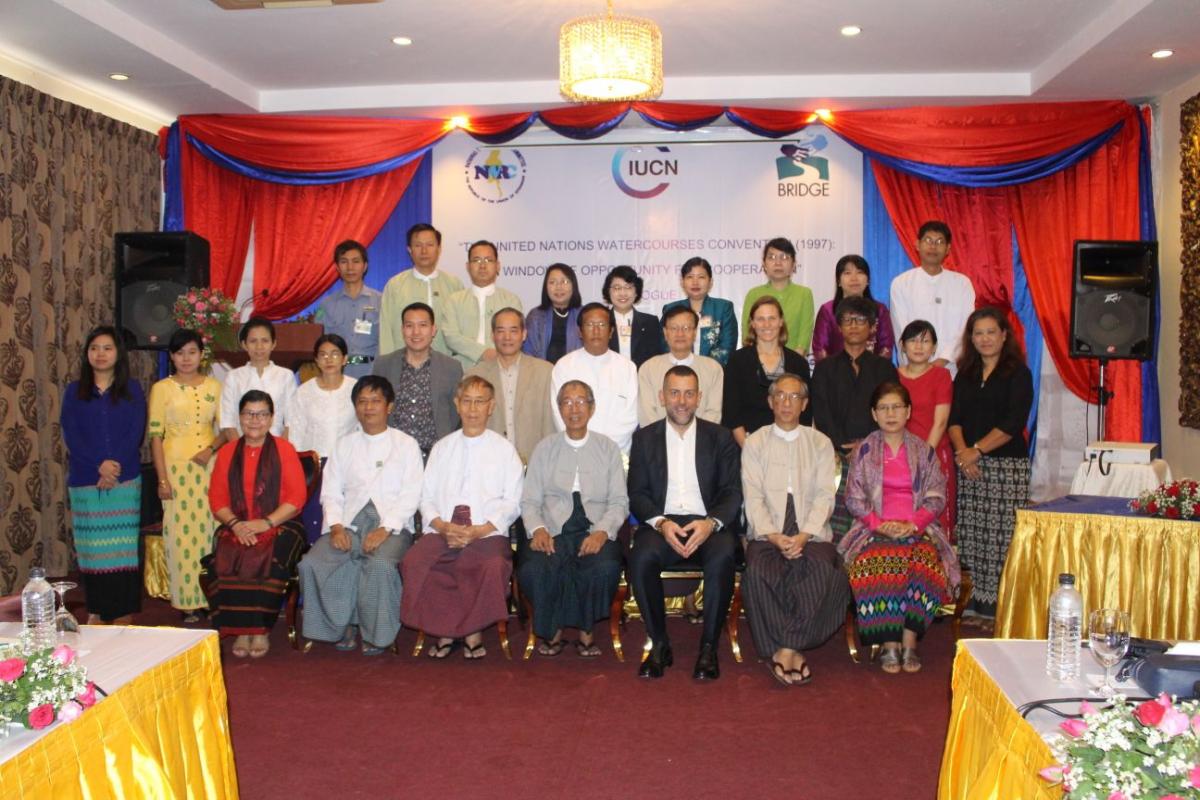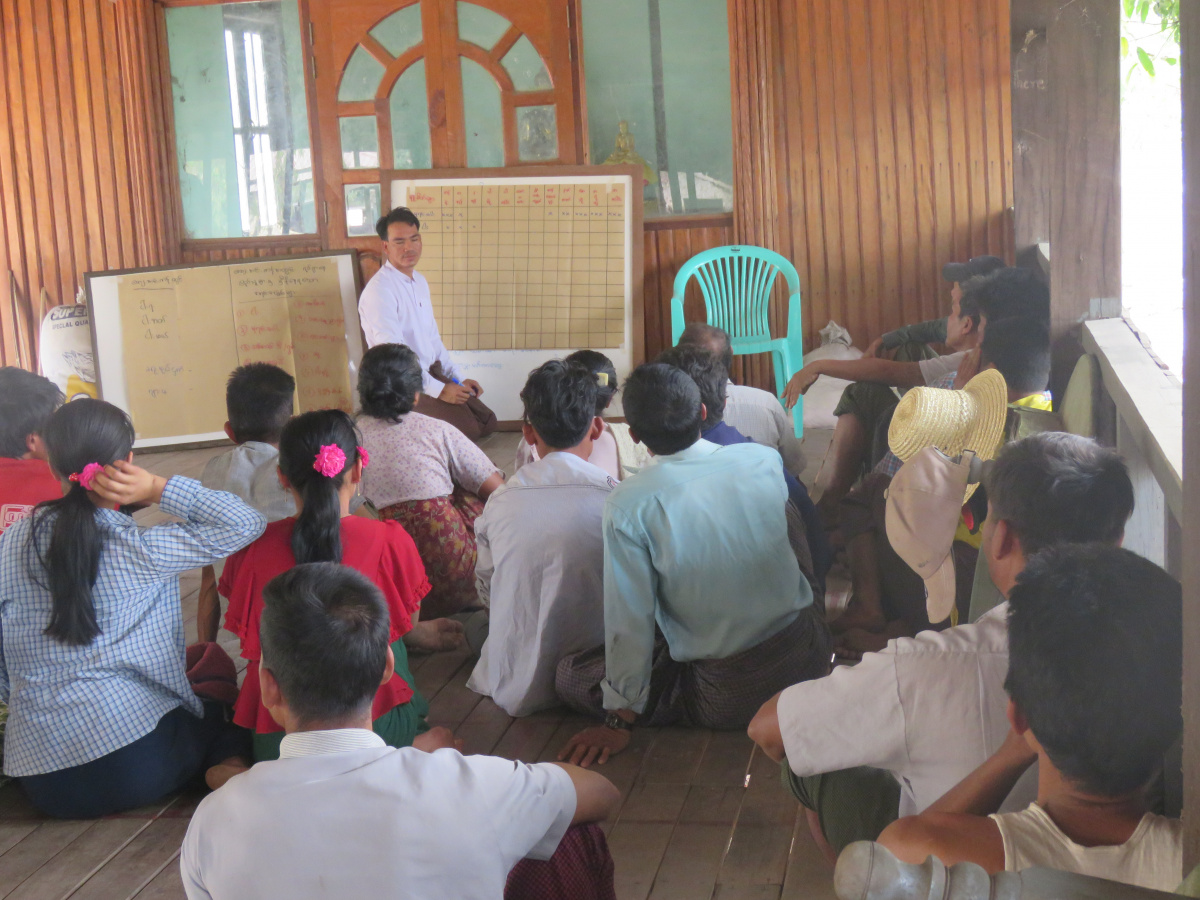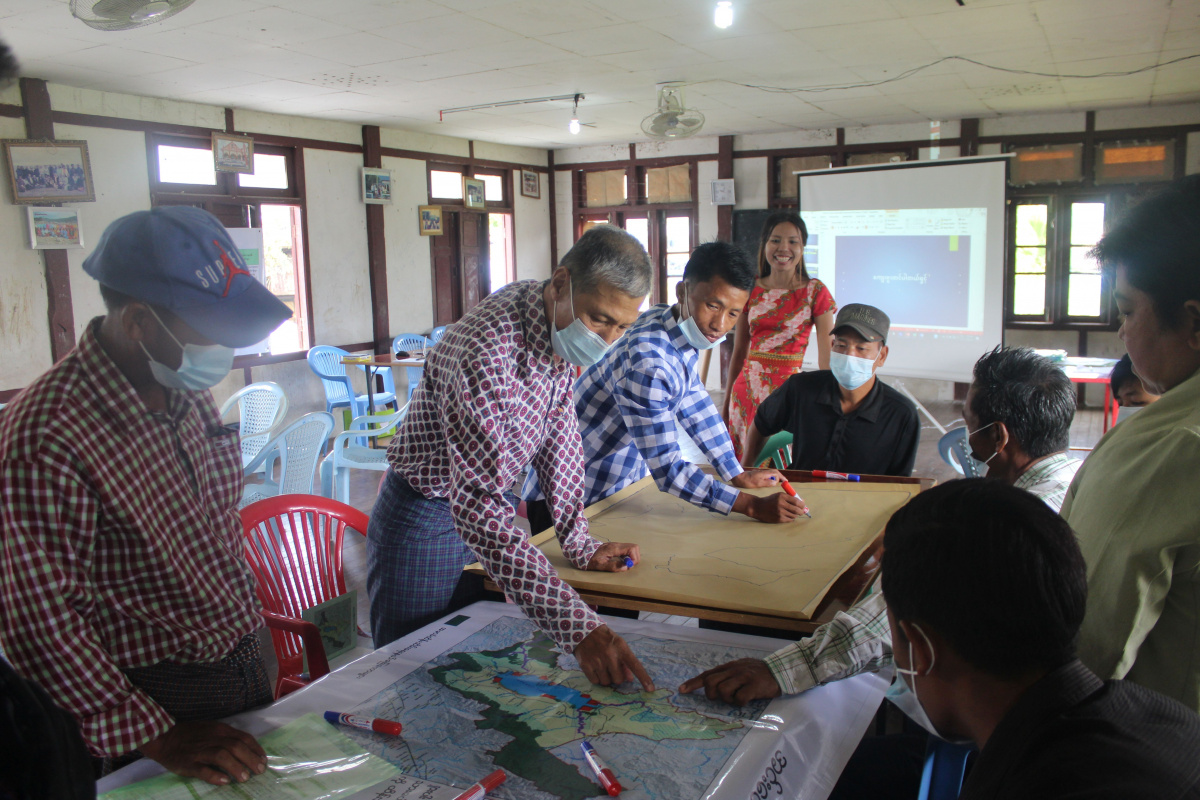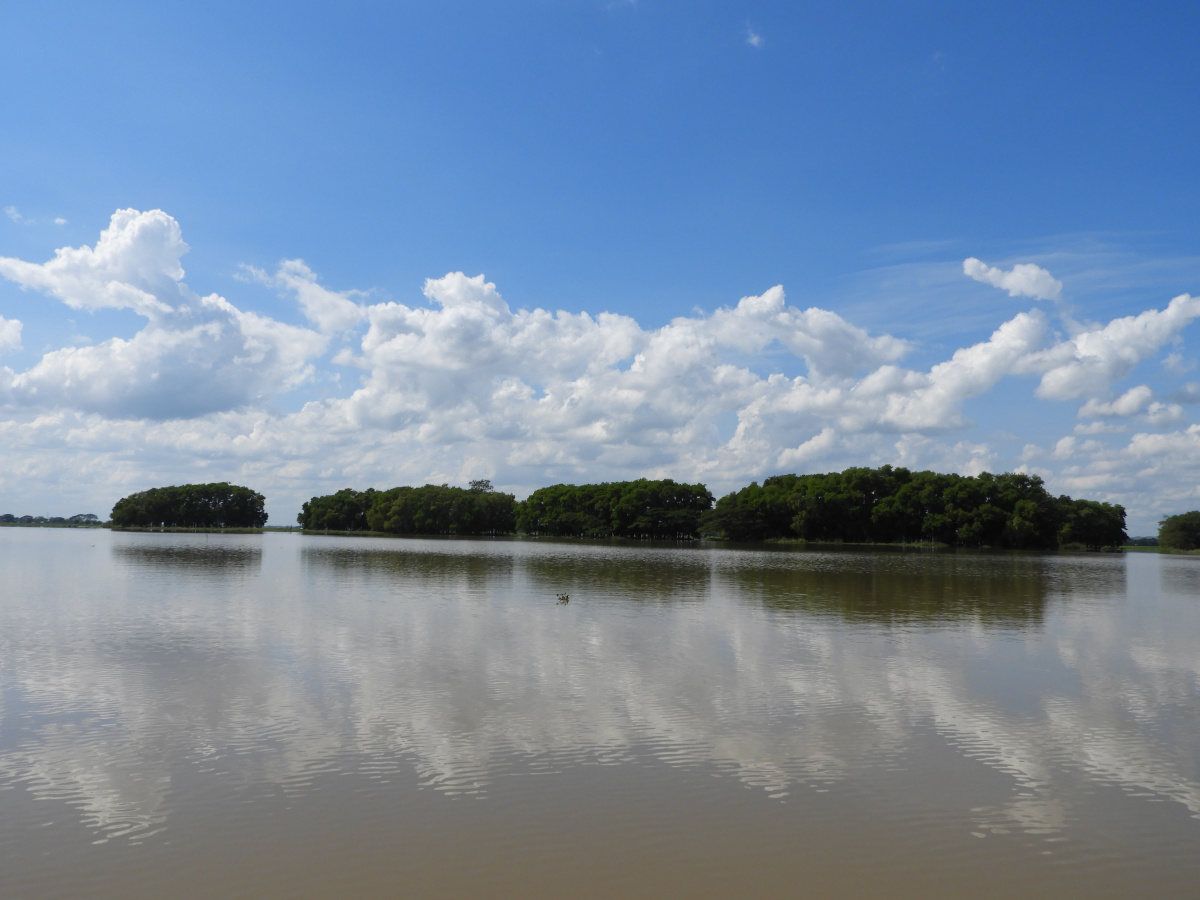Myanmar holds dialogue on UN Watercourses Convention cooperation opportunities
IUCN, together with the Myanmar National Water Resources Committee (NWRC), held a dialogue on ‘The UN Watercourses Convention: A window of opportunity for cooperation,’ in Nay Pyi Taw, Myanmar on 11 April 2018. The dialogue aimed to provide a better understanding of the UN Watercourses Convention (UNWC), and the possible implications should Myanmar decide to accede to the UNWC. The participants include the members of NWRC, including its Advisory Board; relevant Myanmar government agencies; academia; representatives from Myanmar NGOs and CSOs; and international development partners such as WWF and IUCN.

Photo: Participants at the dialogue © Ye Thu Aung, Junior Researcher, AIRBM Project
Throughout the whole dialogue, substantive discussions on the benefits and challenges of Myanmar acceding to UNWC were floated around the floor. All stakeholders from the Myanmar side shared their views on the benefits that Myanmar might gain from the UNWC, and also addressed the political, economic, and social challenges that the country may face as a result of the Convention. Dr Alejandro Iza, Director of the IUCN Environmental Law Centre based in Bonn, Germany, gave a presentation on the UN Watercourses Convention, and provided insightful recommendations regarding the Accession and Ratification of the UNWC. Dr. Iza rectified the possible misconception, and made it clear that the accession to the UNWC had nothing to do with the internationalisation of the river, but instead was done to establish a framework to define the rights and duties of States in the use of a transboundary watercourse.
Dr Tran Duc Cuong, Deputy Secretary General of the Vietnam Mekong River Committee, also gave a detailed presentation on Viet Nam’s process to ratify the Convention, in addition to the benefits Viet Nam gained following the Ratification, including all the challenges the country faced throughout the whole process. The participants from Myanmar were fully engaged and were interested to learn from Viet Nam’s experience. Dr Cuong insisted that Viet Nam’s relationship with China concerning transboundary water issues has improved recently, though China has not yet ratified the Convention; this is largely due to the fact that under Viet Nam’s ratification of the UNWC, there was a platform to initiate discourse about transboundary water governance under the Convention. The discussion went into substantive detail, and many viewpoints were exchanged from all stakeholders, all of whom were enthusiastic to share their views.
Dr Khin Ni Ni Thein, the Secretary of the Advisory Group and Member of the NWRC, insisted that Myanmar has always been interested in issues of transboundary water governance since its participation at the Global Water Partnership in 1996, and the country is still keen presently. However, most of the stakeholders in Myanmar still require more understanding of the issue. Thus, capacity-building remains a key challenge, and this could certainly leave room for cooperation with International Development Partners. Myanmar expressed interest in seeking further support from and involvement with the IUCN BRIDGE programme, funded by the Swiss Development Agency, and the country also was interested in bringing on board other partners such as WWF on this important issue.
For more information, please contact:
Zin Myo Thu
Head of Office
IUCN Myanmar



